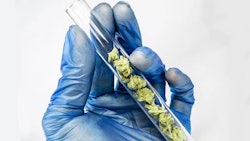
Minnesota Gov. Tim Walz issued an executive order March 31 that extends medical cannabis enrollments for patients to limit the spread of COVID-19, according to an INFORUM report.
Patient enrollments are extended until Aug. 1 or 60 days after Minnesota’s peacetime emergency ends, whichever is later, the news outlet reported.
Walz’s order also allows patients to send a caregiver to pick up their medical cannabis products, and dispensaries may offer curbside pickup. Those seeking enrollment in the program can consult remotely with a medical provider under the order, according to INFORUM.
The changes are aimed at keeping patients at home and slowing the spread of coronavirus in the state, which had 629 confirmed COVID-19 cases as of March 31, INFORUM reported.
























